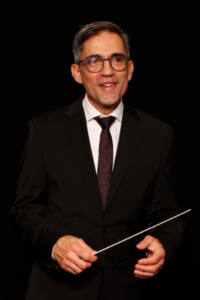TANYA TAGAQ IN CONCERT
Tanya Tagaq (1975— )
Sivunittinni (“The Future Ones”)(2015)
Arranged by Jacob Garchik (1976— )
Composed for 50 For The Future: The Kronos Learning Repertoire
Artist’s note
“Sivunittinni, or ‘the future ones,’ comes from a part of a poem I wrote for my album, and is the perfect title for this piece. My hope is to bring a little bit of the land to future musicians through this piece. There’s a disconnect in the human condition, a disconnect from nature, and it has caused a great deal of social anxiety and fear, as well as a lack of true meaning of health, and a lack of a relationship with what life is, so maybe this piece can be a little bit of a wake-up.
Working with the Kronos Quartet has been an honour. We have a symbiosis that allows a lot of growth musically. They teach me so much, I can only hope to reciprocate. Kronos has gifted me the opportunity to take the sounds that live in my body and translate them into the body of instruments. This means so much because the world changes very quickly, and documenting allows future musicians to glean inspiration from our output.”
Further insights into the creative process are available online, including a full score. Composer Tanya Tagaq discusses her musical background, her relationship with Kronos Quartet, and Sivunittinni, the piece she wrote them for their 50 for the Future program. For the composition of this work, Tagaq first made several voice recordings, which were then transcribed and arranged for string quartet by Jacob Garchik. Tagaq’s original voice recordings can be found here. Two members of the Kronos Quartet, David Harrington and Sunny Yang, also prepared an instructional video to demonstrate key techniques for Sivunittinni.
Intermission
Rodney Sharman (1958— )
Suspension (2016, rev.2024)
In February of 2016, conductor Edwin Outwater and the Kitchener-Waterloo Symphony gathered in a black box theatre to present a multi-disciplinary concert featuring some classical music “disruptors.” Amongst the artists were vocalist and 2014 Polaris Prize winner Tanya Tagaq, and Vancouver-based composer Rodney Sharman. His manuscript, Suspension, for two flutes, gongs and string orchestra, featured the Inuk throat singer in what was described as “an open musical bed on which to lay Tagaq’s extraordinary instrument.”
In 2017, the Victoria Symphony presented Tagaq’s TSO-commissioned work Qiksaaktuq (at Alix Goolden Hall under the direction of Bill Linwood and Christine Duncan) which made a huge impression on principal violist Kenji Fusé. Fast forward to 2024, when Sharman was completing his recent term as VS Composer-Mentor in Residence. Discussions ensued about incorporating a work that would feature the solo voice of Fusé’s viola. Sharman fulfilled a long standing request to revisit his score for Suspension, and adapted it for improvising soloist (with Fusé on viola), alongside strings and harp. It echoes the inspirational encounters the musicians have shared over the years.
Tanya Tagaq (1975— ), with Jean Martin, & Christine Duncan
Qiksaaktuq ( “Grief”)
Original materials by Tanya Tagaq, Christine Duncan and Jean Martin, orchestrated by Christopher Mayo and commissioned by the Toronto Symphony Orchestra, Peter Oundjian, Music Director, with financial support from the Government of Canada for performance during the 150th Anniversary of the Confederation of Canada.
Qiksaaktuq was premiered by the Toronto Symphony on March 4th, 2017, led by conductors André de Ridder and Christine Duncan. It was one of seven works featured at the TSO’s week-long New Creations Festival, curated by Canadian musician and fellow Polaris Prize-winner Owen Pallett. Qiksaaktuq has subsequently been performed by many orchestras across Canada, (including a performance by the Victoria Symphony at Alix Goolden Hall in November 2017.
A staunch defender of the rights of women, the environment, and Indigenous communities, TanyaTagaq shares this improvised lament in five continuous movements. It is built on the stages of grief (as described by Elisabeth Kübler Ross in her book On Death and Dying): denial, anger, bargaining, depression, and acceptance. The work is dedicated to missing and murdered indigenous women and girls, and to those who grieve for them. Christine Duncan (a veteran Canadian vocalist and conductor who leads the improvisatory cues for the brass section) describes the development of the piece:
“We sought to create a work that combines improvisation and notation, and captures the methods and spirit of a Tanya Tagaq performance. [Producer} Jean Martin created an orchestral score (with the invaluable assistance of Christopher Mayo) comprising ideas from tracks and loops that have been part of Martin’s work with Tagaq over the years. To this, we have added hand cues with which [I] will freely conduct the brass section. Within this framework, Tagaq will create her part in real time… All of these components are essential in the creation of the composed/improvised, or “comprovised” piece, Qiksaaktuq.”



 Giuseppe Pietraroia, conductor
Giuseppe Pietraroia, conductor Tanya Tagaq, soloist
Tanya Tagaq, soloist